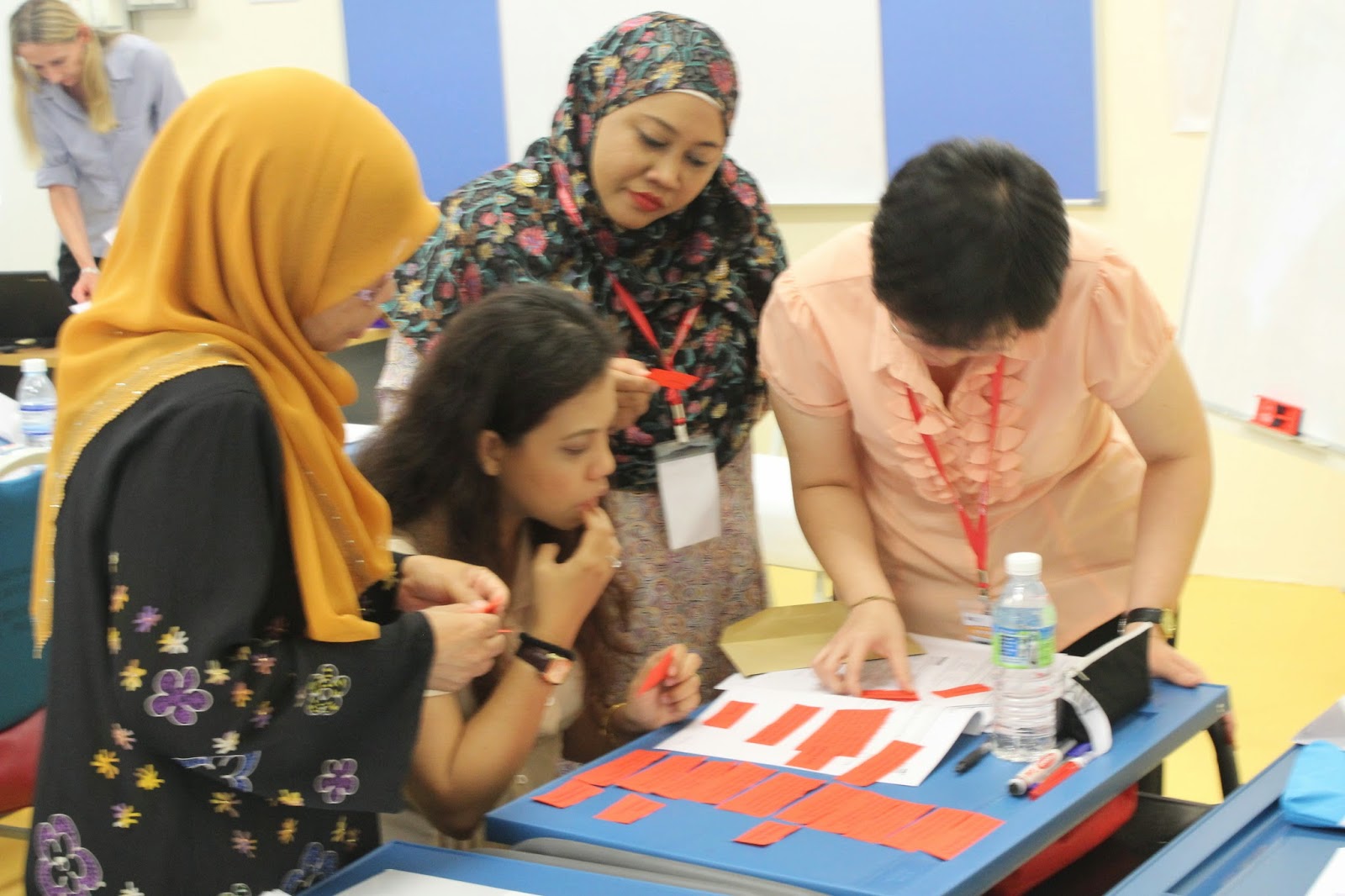DAY : 2 - 09 October 2014 (Thursday)
A. English Language Class (Hospitality & Tourism)
The London Group started the 2nd Day of training on the English Language class by working specifically on the topic of “Hospitality and Tourism” handled by Mr Bill Bowler. The group was taken on a ‘tour’ to the Brighton beach. This was followed by the discussion on the impacts of tourism on the beaches. The group was exposed to the principles of active learning and differentiation with the use of dictation and jigsaw reading activities.
Each group shared ideas on tourism within the local settings and several interesting issues were highlighted such as the incidences of the national carrier (Malaysia Airlines System) and their effects on tourism, the role of mural paintings on tourism, health tourism and so on. The impacts of tourism were also discussed from three different perspectives, i.e. economic, social and environmental.
Each group shared ideas on tourism within the local settings and several interesting issues were highlighted such as the incidences of the national carrier (Malaysia Airlines System) and their effects on tourism, the role of mural paintings on tourism, health tourism and so on. The impacts of tourism were also discussed from three different perspectives, i.e. economic, social and environmental.
Impact/Reflection:
The session had exposed the London Group to meaningful and fun-filled activities that could be adapted and carried out with mixed ability class. The CLIL approach has definitely broadened our knowledge on suitable approaches that could be used within the Malaysian classroom context, specifically on the principles of active learning and differentiation
B. Learning Skills Across The Curriculum
 |
| Teamwork activity : Mix & Match |
 |
| BrillyAnts group member in London were trying out a student-centered activity assigned by our tutor Ms Carole |
 |
| Active participation among the Londoners |
 |
| Mr Chris listening attentively to one of the participants |
 |
| This is a fun classroom game called 'Taboo'. One has to guess the word or phrases written on the whiteboard by guessing from other participants' hints |
C. Language Across The Curriculum
Our day two in the course has become more interesting and acknowledging as we ventured into Language across the Curriculum session facilitated by Mr. Chris as our trainer. Throughout the session we have learnt some important things about learning and teaching. Mr. Chris started the lesson with a Bingo game. The aim of this game is simply to improve our language accuracy and to apply grammar accurately. The only downside of this game was that some of us had no idea on how to play the game in the first place. It was only at the end of the game that we realised what bingo is all about. This session is important as it demonstrates the importance of language for the students not only in English class but their core subjects. These are two suggestions that are worth considering when you want to make your grammar lesson less conventional and complicated to be understood. Firstly, choose materials that can benefit beginners and challenging enough for the advanced learners. Secondly, introduce communicative grammar lesson through collaboration among learners to ensure active participation from learners. This session was truly beneficial as it opened a new insight on how the teaching grammar can be made interesting and interactive.
Impact / Reflection
Lively dynamic activities along with the input presentation enhanced participants’ mood as well as motivation in absorbing the content. Participants experienced a true learner-centered CLIL approach with differentiated instruction which can be definitely adapted for the use in the English language classrooms at technical institutions.
Prepared by:
Radika Subramaniam

Good luck to all of you
ReplyDelete